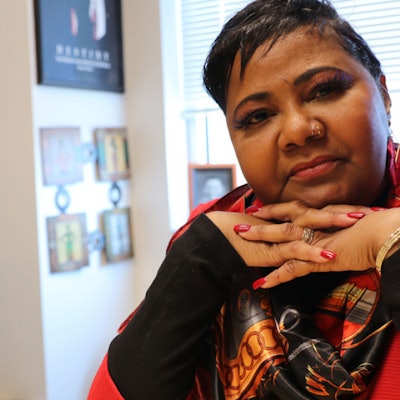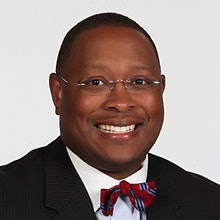Rightfully so, much has been written and discussed about the need to increase the representation of Black and other minoritized educators in P-12 and higher education. Rather than reiterating this dire need, we decided to hone in on allyship – developing and collaborating with white students given that they are the majority of educators at all levels. We must reach out to the roughly 85% white world of professors/faculty and teach the majority white college student population in colleges and universities. The three of us joined in this short piece to model and share our insights relative to collaborating as advocates and allies working on the mutual goal of being and developing anti-racist, equity-oriented, and culturally responsive educators from all racial and ethnic backgrounds.  Dr. Donna Y. Ford
Dr. Donna Y. Ford
Ford: As a Black scholar, I offer no apology for being angry about and taking on racism in word and deed. I have voiced my righteous outrage in hundreds of publications and thousands of presentations/interviews in the spirit of making ‘good and necessary trouble’ in educational settings – general, gifted and talented, special education, and counseling. Racism is ingrained in every iota of these contexts -- miseducation (Carter G. Woodson), educational malpractice (James L. Moore III), and curriculum violence (Ighodaro & Wiggan).
For Blacks in the U.S., racism has been a pandemic since 1619; while there is some progress and reason to be optimistic, there is also reason to remain steadfast and proactive about preventing racism”. Arthur Levine asserted that “the equity issue should be as important to education schools as AIDS or cancer is to medical schools” (p. 3). That was 2004; since 2019, COVID can be added. Out with the old (racism) and in with the new (racism) is an all too familiar cycle. I was flabbergasted to learn this month – March 2022 -- that the Senate just passed an anti-lynching bill. #WTF!
I refuse to succumb to Racial Battle Fatigue (William Smith). So, I write and speak up, which are cathartic for me. I teach with conviction and desperation to prepare current and future education professionals of color to be empowered and white ones to be staunch allies. As an assistant professor, I risked promotion and tenure by being vocal about racism, particularly in gifted and talented education. At every opportunity, I was demanding that Black and other minoritized people fight to end racism. I will never forget an older white female pulling me aside, after my keynote presentation, stating matter-of-factly: “Racism will end when whites want it to end.” She encouraged me to recruit whites as allies in battling to end the problem they have created and maintain today. I also know the crucial need to collaborate with like-minded, equally dedicated Black scholars.
Moore: I come to this work of dismantling school-based discrimination with attention to the head (thinking, beliefs, attitudes, values) and heart and soul (emotions and feelings). Recruiting student-allies to end injustices cannot take place without affective-oriented commitment, such as empathy and compassion. When thinking and feeling are seamlessly complementary, there is more than enough power and empowerment, agency, and cultural efficacy to take on their own and others’ unearned white privilege, faulty stereotypes, and disregard for students and clients of color. Our work as school counselors must not be culturally assaultive on the one hand and ‘cultureblind’ (Donna Y. Ford) on the other.  Dr. James L. Moore III
Dr. James L. Moore III
I learned early on that education (at all levels) is a training ground for helping students/learners to be agents of change --disrupters, transformers, reformers – through focused, rigorous, and culturally responsive teaching, scholarship, and programs. That’s where the hope lies in education. Academic settings are our stage, our pulpit, our ministry, our calling to ‘teach to transgress’ (bell hooks), to challenge the status quo. It is our obligation to be assertive and proactive educators who stay the course in developing current and future professionals to be conscientious advocates and allies guided in the ageless philosophy of ‘do no harm’. As Black individuals and professors, we are proud of the many successes of former and current students.




















